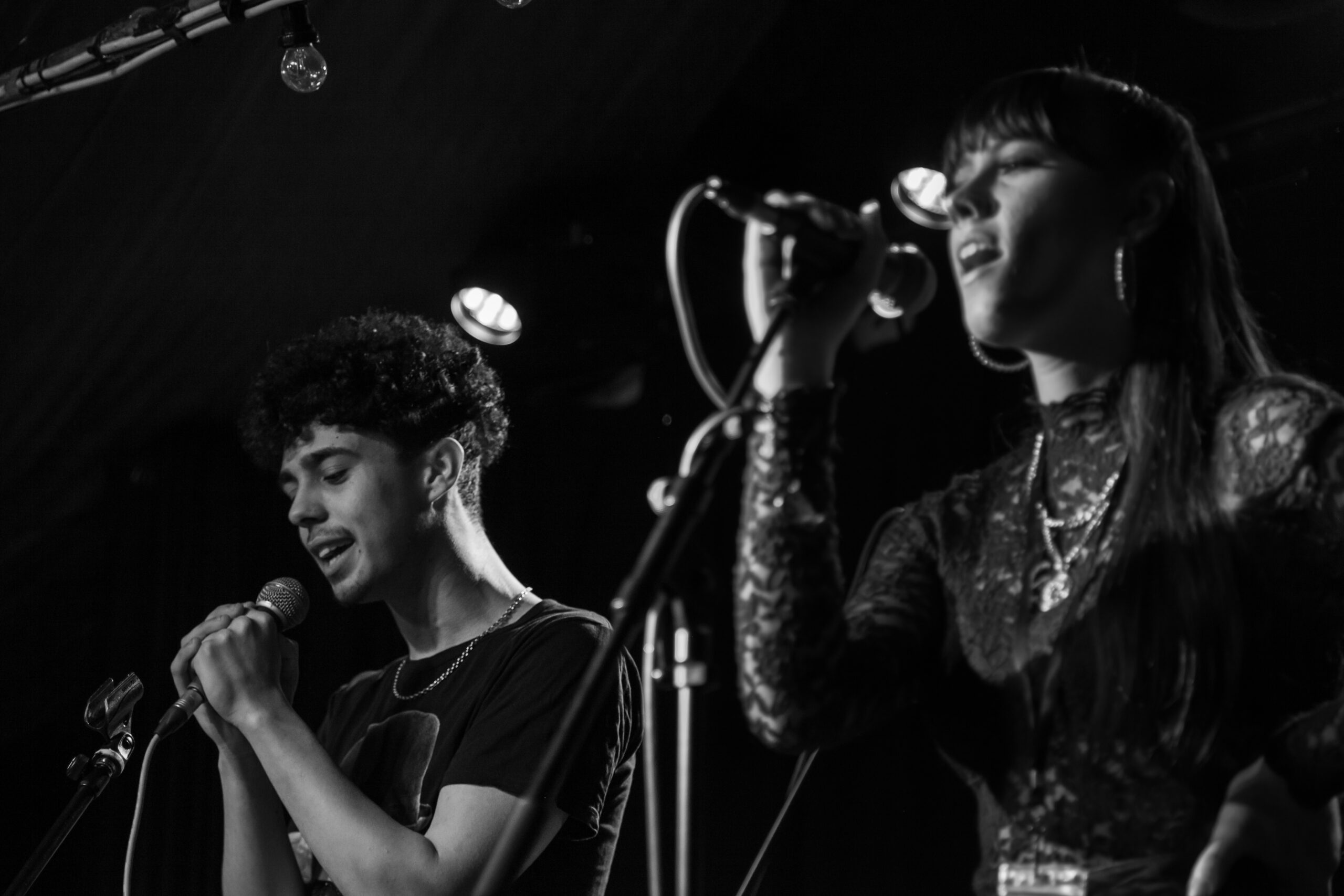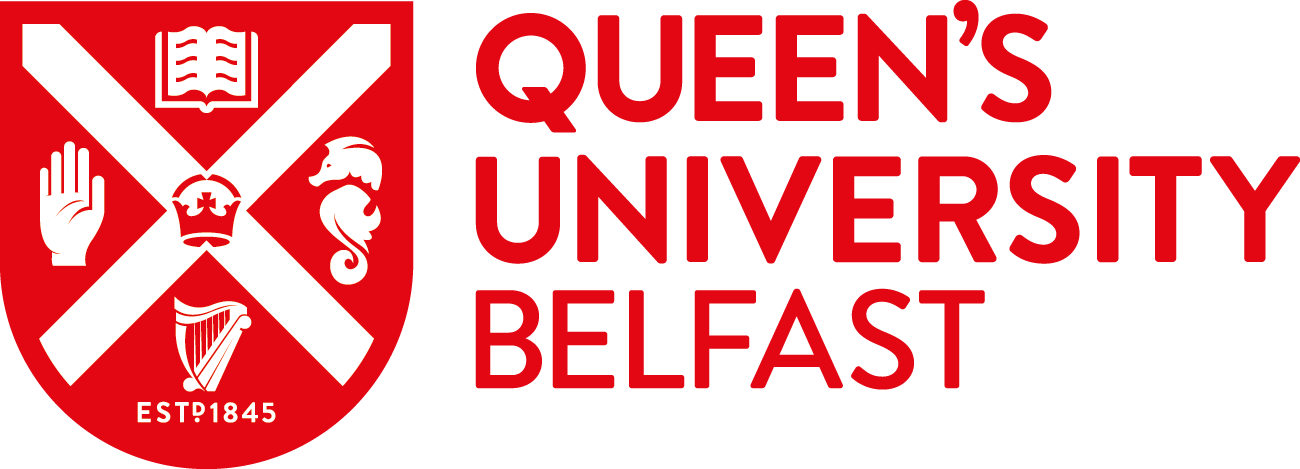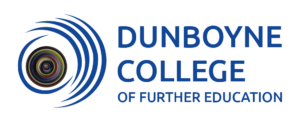Higher Nationals
Artist Development for MusiciansBTEC Higher National Diploma in Music (Artist Development)
DETAILS IN-BRIEF
Duration: Two years, with an optional exit award after year one.
Certification: BTEC Higher National Diploma in Music (Artist Development), with optional Higher National Certificate after year one.
Level: Level 6 Higher Certificate (HNC/D)
Course Code: MND
YEAR ONE MODULES
Applied Music Theory
Instrumental Techniques
Marketing and Promotion
Music Production Fundamentals
Performance
Professional Development
Songwriting
The Music Industry
YEAR TWO MODULES
Advanced Composition Techniques
Advanced Performance Skills
Creative Portfolio
Creative Research Project
Developing as an Artist
Live Arrangement Skills
Musical Direction in Practice
Please note that all the modules listed are subject to change due to availability and demand.

This page is for our two-year Higher National Diploma in Music. For our one-year foundation course in Music, click here.
WHAT ARE THE HIGHER NATIONALS IN MUSIC?
Do you have a passion for music and songwriting? Do you want to elevate your skills and seize the numerous opportunities that Ireland’s thriving music industry has to offer? Dunboyne College is proud to offer our Higher Nationals in Music, an innovative and comprehensive programme designed to empower you with the knowledge, skills, and understanding to excel in the global music environment.
Our Higher Nationals in Music go beyond traditional classroom education by emphasising the practical nature of learning how to compose and perform music. You will benefit from one-on-one coaching and mentorship from experienced industry professionals, helping you refine your skills and talents. Through collaborative projects and real-world scenarios, you will gain invaluable experience and insights into the music industry, preparing you for a successful career as an artist or music professional.
COURSE STRUCTURE
Year One
Throughout the first year, you will delve into various aspects of the music industry, learning about its structure, history, and contemporary landscape. You will gain essential marketing and promotion skills, understanding how to effectively showcase your talents and projects. Our curriculum emphasises professional development, equipping you with the tools and knowledge required to excel in your music career.
As you progress through the first year, you will explore applied music theory, enhancing your understanding of the principles and techniques that underpin musical compositions. The performance and instrumental techniques modules will fine-tune your skills as a musician, allowing you to express yourself confidently on stage and in the studio.
The course also covers music production fundamentals, offering a solid grounding in the technical aspects of creating and recording music. Additionally, you will have the opportunity to hone your songwriting skills, developing your unique voice and style as a composer.
Year Two
The second-year curriculum focusses on further refining your skills as an artist, allowing you to develop advanced performance techniques and create a compelling creative portfolio. Delve into the art of musical direction and explore the practical applications of this crucial skill in the music industry. You will also master advanced composing techniques using technology and gain proficiency in live arrangement skills.
Modules in Detail: Year One
Applied Music Theory: Musical theory is a vital tool for creative music performance. It allows us to communicate our ideas effectively with listeners and fellow musicians on paper and in performance. This module focuses on the principles, techniques, and terminology for making music and applying them to create musical benefit. Students will learn to use the keyboard to visualize theoretical formulae in a less mathematical way, developing their aural perception and proprioception of the concepts. Keyboard skills are an essential attribute for all working musicians. By the end of this module, students will be able to recognize melodic, rhythmic, and harmonic elements in the composition of contemporary music styles, with an understanding of how they function stylistically and structurally.
Instrumental Techniques: Technique is the foundation for becoming an outstanding and versatile musician. The music industry is highly competitive, and the expectations of today’s performers are ever increasing. This module encourages students to investigate the technical skills required by professional musicians before applying this knowledge to their own practice. Students will develop skills through practice plans, harmony, scales, rudiments, technical exercises, warm ups, posture, dynamics, tempos, music theory, music notation, musicianship, expression, stamina, control, sound, tone, pitch, tuning, intonation, using a metronome, practice schedules, listening, aural skills, intervals, embouchure, grip, sticking, fingering, maintenance, and health and safety in connection with an instrument. On successfully completing this module, students will have a broad knowledge of technical approaches relevant to their instrument, the capability to create focused practice schedules, and the ability to continually monitor their progress concerning industry standards.
Marketing and Promotion: Marketing is a vital aspect of a successful career in the music industry. This module provides students with knowledge that will form a ‘toolkit’ of information about freelancing and marketing activities they can use to further their career in the music industry. These tools include offline techniques, such as effective networking and online and social media marketing. Students will also be exposed to resources and utilities that will help them create a professional marketing presence. Students will investigate and research the relative merits of each of these tools, helping them evaluate the most suitable marketing activities for their practice area. By the end of this module, students will be able to define the various roles in the music industry, explain the different marketing activities available to them, and identify which ones are most relevant to their practice area.
Music Production Fundamentals: Technology is ubiquitous in contemporary music production and an industry-standard tool in the music and entertainment industries. This module introduces the skills to record, produce, mix, and master creative ideas within a current studio and industry practice framework. Students will develop a core ability level across a range of connected fields, providing a platform for progression through self-directed learning or further study. Topics included in this module are DAW familiarisation, critical listening skills and stylistic awareness, introductory MIDI sequencing, editing, manipulation and arrangement, audio sequencing, editing, manipulation and arrangement, VST instruments, samplers and effects, synthesis and sampling DAW signal flow and routing, mixing and mastering, session management, and workflow. On completion, students will be able to record and produce music in various styles, aided by development in critical listening and analytical skills, and enhanced contextual and theoretical awareness.
Performance: Live performance is one of the most important areas for an artist, band or session musician. In a competitive market, it is important for upcoming musicians to showcase their work and skills. Downward sales in recorded music have also resulted in more established artists touring and performing live to increase their revenue and to promote their merchandise and recorded works. This module encourages the student to investigate all aspects involved in staging a musical performance to showcase their skills. A variety of performance areas are covered in this module including: performance techniques, audience expectations, planning a rehearsal phase, commercial costs, hiring musicians, stage plans, technical specification lists (tech specs), communicating with a venue and promoting an event. On successful completion of this module, a student will be able to plan, promote and execute a successful showcase that meets the expectations of their audience.
Professional Development: The landscape of the music industry has changed dramatically over recent years; technology has influenced the way we both produce and consume music and presented many challenges to musicians, artists, songwriters and record labels, it has also created new opportunities for music entrepreneurs. For employment in in the music industry to be successful and sustainable, today’s professional is often versatile and enterprising, maintaining a portfolio career in which they can fully exploit their complete range of skills. Knowledge of your professional strengths and identity is the first step towards building a strategy to inform your professionalism route. In this module, you will explore the many potential avenues of employment that relate to your specialism, build an awareness of how to present yourself to the market place and embark on the journey of professional development. Upon completing this module, students will have made decisions around their vocation and will demonstrate the level of autonomy needed for success in the music industry.
Songwriting: In today’s music industry, songwriting requires versatile skills and knowledge. Writing as an individual or writing as part of a collaborative project, involves a variety of transferrable skills that will be explored and developed throughout this module. The purpose and intention of creating songwriting material must be at the front of any students wishing to earn money from their compositions. Skills developed in this module include the social and cultural context of song creation and biographical context of song creation. Students will explore songwriting tools such as hooks, subject matter, song form, structure, arrangements, communication tools, and working with other musicians in a collaborative project or sharing ideas. The module will develop processes for generating lyrical content and how to work with ‘inspiration’ through exploring the identity, purpose and intended market for songs related to genres. The aim of this module is to equip students with the songwriting tools to create their own portfolio of material, whether as individual songwriters or as part of a collaborative team that is in line with current music industry needs. By the end of this module, students will have developed their songwriting skills and how these skills can be applied to current music industry needs. Students will have created a portfolio of songs and explored any areas for future songwriting skill development.
The Music Industry: The Music Industry The music industry is an ever-evolving industry with various areas that interact, with technology being an increasingly vital driving force. It is essential that students wishing to earn money in the music industry are aware of the complexities and the structure of this industry and the potential income opportunities available to them. This module will introduce students to the industry’s structure, focusing on revenue flows, employment opportunities, business activities, and growth potential. Students will analyze income streams of various areas and assess which revenue streams are relevant to their own personal career goals. Students may go on to study the music industry’s business in-depth in other modules. Therefore, this module serves as an introduction to employment in the music industry, focusing on financial opportunities in the wider context and students’ personal career plans.
Modules in Detail: Year Two
Advanced Composition Techniques: This module builds on material introduced in first year and focuses on advanced aspects of music theory and compositional technique. These can be applied practically across all genres to create more sophisticated musical material with a greater degree of complexity. In addition, knowledge of music theory facilitates in-depth communication with other musicians and greatly expands the range of professional opportunities available in the industry. The aim of this module is to introduce students to advanced aspects of western music theory, wherever possible through practical work. The skills and knowledge covered will provide a basis and point of reference for practical composition work and written contextual work across all other music modules. Topics included in this module cover a range of advanced concepts, including notation, rhythm, melody and harmony, complex multi-part structures and compositional principles. On successful completion of this module, students will produce three short compositional studies, in which they will apply all of the skills learned over the course of study. In addition, students will produce visual representations of their studies, identifying key musical characteristics, and assessing their work in the light of common practice and convention.
Advanced Performance Skills: The development of technical ability is redundant without the inspiration to perform with intent, expression and meaning. Advanced performance skills rely heavily upon a comprehensive understanding of instrumental concepts, musical context and flair, that can then only be delivered through accomplished technical facility. Advancements in technology have required musicians to strive for a higher quality of performance than ever before, recreating and representing the flawless accuracy and consistency now possible through synthetic instrumentation, programming and post production techniques. All of this has now come to set a new industry standard of presentation and expectation upon musicians. In this module, students will investigate performance health issues, create virtuosic and stylistically authentic vocabulary for their own instrument, employ music technology to enhance group and solo performance, as well as explore their own artistic influences.
Creative Portfolio: This module provides an opportunity for students, on any central pathway, to create a unique portfolio of work relating to launching a product in their chosen field – such as a record label, a service, a cutting-edge piece of software. This creative portfolio will perform as an industry calling card. The essence of the Higher Nationals is to prepare students, ultimately, for a creative industry occupation, or to arm them with the essential skills to set up on their own. The execution of well-researched and well-presented portfolio will support students to hit the industry ground running, as it will demonstrate the research skills, creative flair and industry know-how that they have developed from successfully completing this course. Alongside supporting students in the building of the portfolio, this module will also encourage students to reach out to relevant industry during the portfolio’s development. In addition, the module will allow the students to showcase their product ideas to an industry panel for feedback before the module’s completion. This is an exceptional opportunity that will not only enhance the development of their product but will also strengthen links to industry ahead of the course’s completion.
Creative Research Project: This module is assessed by a Pearson-set assignment. Students will choose their own project based on a theme provided by Pearson (this will change annually). The project must be related to their specialist pathway of study. This will enable students to explore and examine a relevant and current topical aspect of Music in the context of a music environment and their chosen specialist pathway This core module will equip students from any area of interest with core research skills. Alongside learning qualitative and quantitative research methods, students can apply these methods in completing a mini-dissertation. With a strong emphasis on taking a creative approach to research, the completion of this dissertation will, in addition, demonstrate the academic requirements to progress into a degree. Furthermore, the dissertation will also be an opportunity for students.
Developing as an Artist: Working as an artist in the current music industry requires a diverse range of skills and knowledge. Adapting to the ever-changing world of different technologies, such as social media, places a greater emphasis on the artist working in a business context and a musical one. Differentiating between yourself as a musical artist and as a business product or brand is a necessity and a reality of today’s creative industries. This module will explore the two sides of being an artist – the business of being an artist and the ‘artistic’ side of being an artist. Through exploring the key roles in the industry, students will explore who they need to work with and importantly how to interact with key personnel and the importance of effective networking. Students will also explore themselves as an ‘artist’, the need to define their own image and product to enable work opportunities and importantly earn money from their own music. By the end of this module, students will have created a full artist portfolio for presentation to industry.
Live Arrangement Skills: Changes to the landscape of the music business have led to a boom in the live music industry that has in turn led to an increase of employment opportunities for musicians on stage as opposed to in the studio. Along with traditional bands, solo artists and electronic bands must be able to present themselves as a convincing live act to prove a viable investment to record companies. Session musicians then become the key to transforming studio recordings into a live arrangement, bringing an energy and aesthetic that will produce the performance element, whilst delivering instrumental expertise and musicianship to represent the character and intent of the original recordings. In this module, students will explore the techniques and processes surrounding contemporary music arrangement for a live band. These techniques will be explored through studies of pre-existing material and creating new and original arrangements for a group context. By the end of this module, students will have developed their arranging skills and be able to create arrangements relevant to a range of contemporary music ensembles.
Musical Direction in Practice: It is often remarked that successful bands have benefitted from an additional member. The ability to lead and follow musical direction effectively is key to a band’s performance being the best it could possibly be. In this module, students will explore the various performance scenarios and modes in which musical direction might occur. Students will learn techniques for communicating with the band as well as explore the musical devices that are commonly controlled. Learning how to direct and be directed, to develop music for performance and will rely on the development of critical listening skills to evaluate the effectiveness of rehearsal techniques and the quality of performances, are also covered. By the end of this module, students will be able to rehearse, communicate and function effectively as a member of an ensemble under musical direction. Students will also be confident and competent in leading rehearsal sessions or a live performance.

WHY STUDY HIGHER NATIONALS IN MUSIC AT DCFE?
As a performer, you will have the opportunity to captivate audiences in live settings such as concerts, festivals, and private events, or through recorded formats like albums and streaming platforms. Develop your talent and passion for music while engaging and entertaining people from all walks of life.
For those with a flair for composing, our course can guide you towards creating original music for various contexts, such as film, television, commercials, and video games. Share your unique musical vision and contribute to the world of entertainment by crafting memorable scores and compositions that will resonate with audiences worldwide.
The course also prepares you for a career as a music producer, where you will oversee the creative and technical aspects of recording sessions. Collaborate with artists to achieve a specific sound or vision, shaping the sonic landscape of the music industry.
As a songwriter, you will have the opportunity to craft lyrics and melodies for songs, working closely with performers to bring their musical stories to life.
As a skilled performer, you will be in high demand for recording sessions, live performances, and touring engagements with various artists and bands, showcasing your versatility and talent.
The Higher National Diploma’s more extensive coursework and advanced skillset make its graduates more competitive in the job market and better prepared for various creative media roles.
The Higher National Diploma is a recognised international qualification, delivered in over 50 countries worldwide. Graduates of our Higher National in Music can progress to various undergraduate degree courses upon successfully completing their studies.
The two-year duration and deep focus of the Higher National Diploma at DCFE often leads to stronger connections with industry professionals and organisations, providing students with valuable networking opportunities and a better understanding of the media production landscape. Plus, students will build an extensive portfolio of work to secure employment.

CERTIFICATION
Being a two-year course, we know how important flexibility is. This is why we offer our students the option of an exit award after successfully completing the first year. This can suit those who wish to take a break from study or progress onto a different course in DCFE or elsewhere.
Year One
– Pearson BTEC Higher National Certificate in Music (Performance)
Year Two
– Pearson BTEC Higher National Diploma in Music (Artist Development)
Links
Click here for the NARIC Academic Recognition of the HNC
Click here for the NARIC Academic Recognition of the HND
CAREER OPPORTUNITIES
Our Higher National Diploma in Music program opens up a world of exciting and diverse career paths for aspiring music professionals. With this qualification, you will be well-prepared to explore a multitude of roles in the music industry.
In addition to the diverse career options, our Higher National Diploma in Music program offers an industry-focused curriculum designed to meet the demands of today’s music landscape. The course emphasises practical learning, artist development, and collaboration, ensuring you are equipped to face the ever-evolving world of music.
ENTRY REQUIREMENTS
At least one of the following:
- Leaving Certificate
- Leaving Certificate Applied (LCA)
- QQI Level 5 major award in a related subject
- Mature students of all background
- Other equivalent qualification
In addition to the following:
- Submitting a personal statement
- Submitting a portfolio of your musical work
More details on each of these will be provided upon application.
HOW TO APPLY
Apply directly using the button below.
You will find the course by selecting “Higher Nationals” in Department on the left and selecting the HNs in Artist Development for Musicians from the Course menu on the right. This is shown in the image below.


EXAMPLES OF HIGHER EDUCATION PROGRESSION
Graduates can take advantage of many degree progression routes, such as the one-year top-up degrees and advanced entry routes into Universities, Institutes of Technologies and Technological Universities across Ireland. As the Higher Nationals are international qualifications, offered in over 50 countries around the world, advanced entry opportunities are also available in the EU and UK. Please note that in all cases, entry is not guaranteed as per institution admissions policies.

QUB: BMUS (Hons) in Music
(Level 8, 3 Years with Advanced Entry into Year 2 possible)

BIMM: TU961 Commercial Modern Music
(Level 8, 4 Years with Advanced Entry into Year 3 possible)

DkIT: DK860 Applied Music
(Level 8, 4 Years with Advanced Entry into Year 2 possible)

BCFE: BA (Hons) in Media Production Management
(Level 8, 1 Year)
Accredited by DCU
COURSE FEES
For information on fees, please see our Fees page
